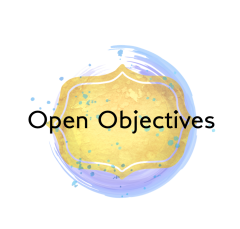Overview
In the spring 2019 semester, I introduced an open pedagogy project in a capstone economics class. Based on the very positive student response to this project, I decided to introduce a podcast project in the fall 2019 semester in my online introductory microeconomics class. In this class, each student was required to create (individually or with a partner) 2 short 5-10 minute podcasts relating to topics they were learning in this class. The first podcast had to address applications of one of the major concepts discussed in the first half of the semester while the second was tied to concepts in the 2nd half of the semester. Students were given the option of posting their podcast solely within the class or publicly.
Process
Addressing concerns
Before the project started, students were surveyed to determine what concerns they might have. The major concerns were:
- a dislike of hearing their own recorded voices,
- concern over whether they would have something substantive to say,
- whether they had adequate technical skills and hardware to record, edit, and share a podcast recording
Addressing their dislike of hearing their own voices recorded, I sent an email to the students reminding them that while they may not like hearing their voices, their recorded voices are the voices that everyone hears when they talk, so unless they were going to avoid speaking in the future, they should not be overly concerned about other’s reactions to the sound of their voices. I also noted that it is likely that they will be making presentations to others in their future classes and careers and that this would be a good opportunity for them to listen to their practice these skills while they had the ability to edit or re-record their presentation.
On the second concern, I noted that they will learn the course concepts deeper if they make connections between the theory they are learning in class and the world they are observing around them
To alleviate concerns over technical skills and equipment requirements, I shared with the class instructions on how their smartphones, chromebooks, or laptop/desktop computers could be used to record and share (and edit, if needed) audio files.
To further reduce student concerns, a preliminary project was assigned in which students listened to one or more episodes of the Planet Money Indicator, Planet Money, or Trade Talks podcasts and then recorded and uploaded a short audio response summarizing the arguments in the podcast and their own response to the arguments presented in the podcast. A Google form was used to collect student file submissions.
Project steps
Each of the podcast projects followed the following steps:
- Students submitted an abstract of the potential podcast for feedback.
- A detailed abstract or a script was submitted for feedback
- students submitted a draft recording (with multiple submissions allowed). This was evaluated using a rubric that had been shared in the LMS.
- A final recording was uploaded using a Google form. As part of this submission, students provided the names of participants, the podcast title, a short abstract, a transcript (most students used otter.ai to create a free machine-generated transcript to use as a starting point ), keywords (chosen from a checkbox list), and their podcast recording. They were also asked at this stage whether they wished to make the podcast public or kept within the class. This was also evaluated using a rubric that had been shared with them at the start of the project.
- The Google form data was shared with the entire class so they could listen to all of the podcasts created by their colleagues.
After the completion of the first podcast project, student contributions were solicited for possible podcast names and for possible podcast intros and outros. The class voted on alternative podcast titles and to select the intros and outros from audio file submissions. (One of the choices selected had to be re-recorded to replace copyrighted music with music provided under a creative commons license.)
I edited the podcasts that were to be publicly posted to remove background noises, filler and repeated words, and to bring the audio to the podcast audio level standards (16 LUFs for stereo podcasts). The public facing podcasts were then posted on a podcast server.
Resources
- Oz-onomics Podcast
- VandyVox – podcast series highlighting the best student podcast produced at Vanderbilt University
